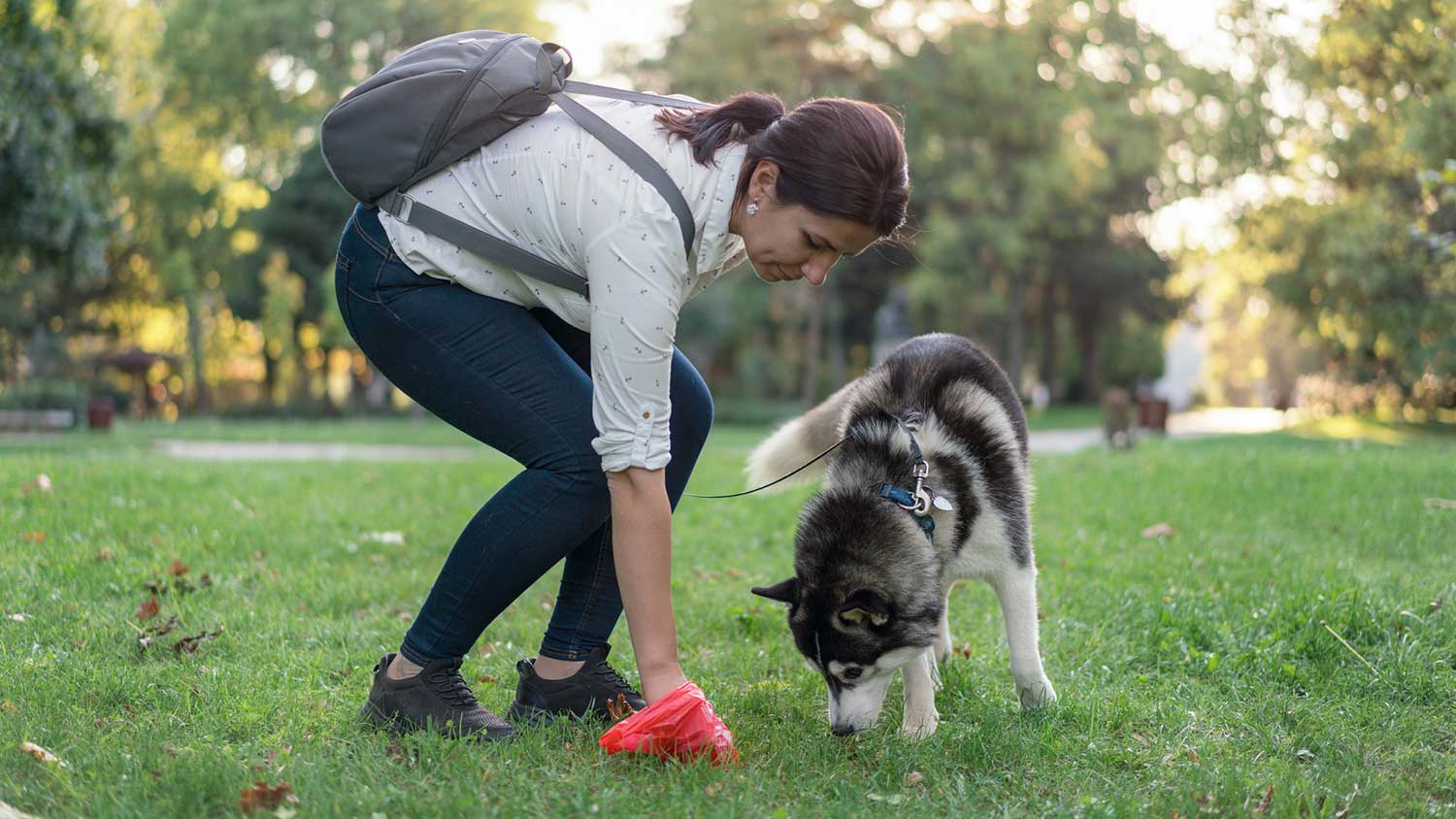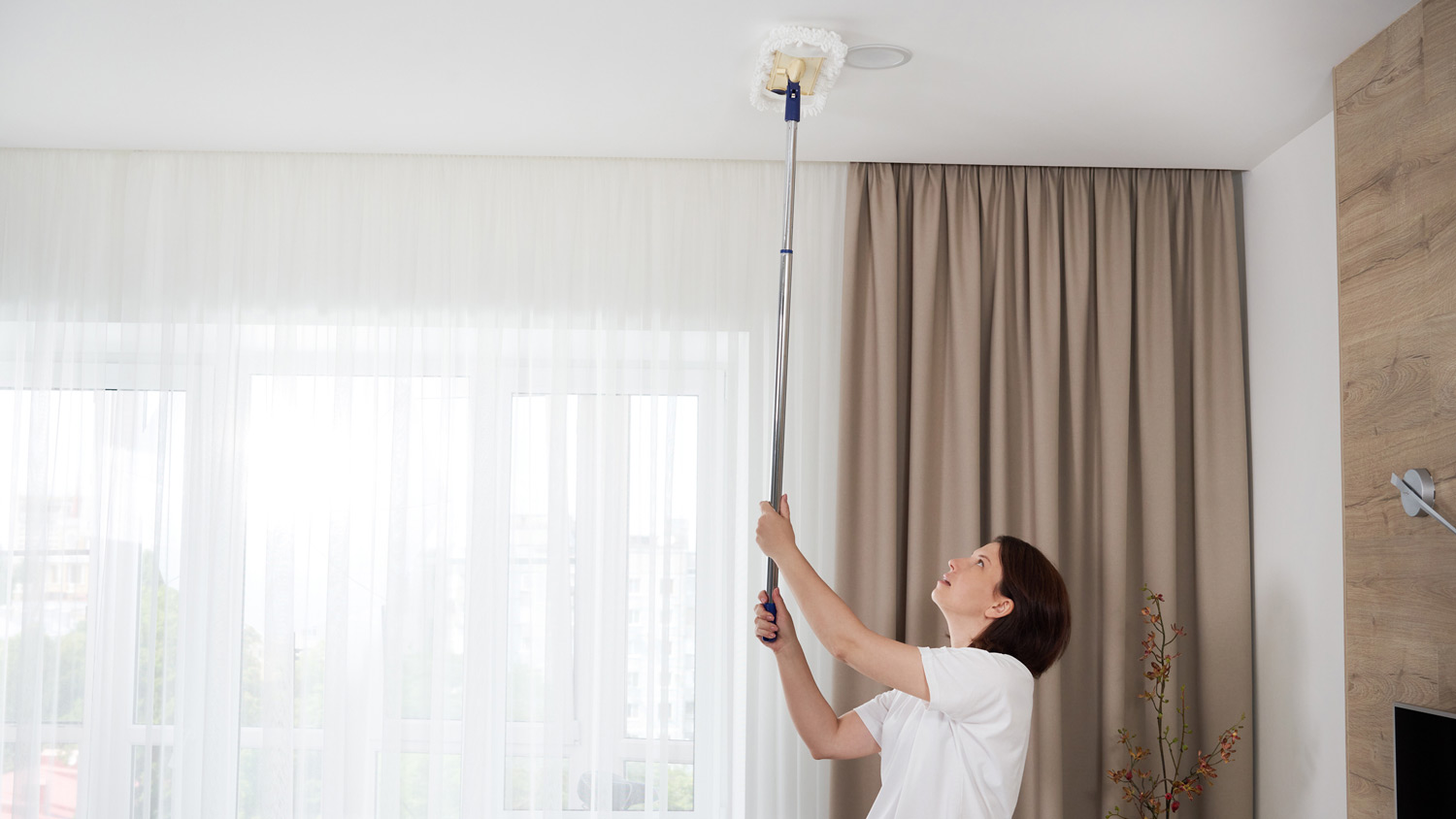
Garage clean-out costs vary considerably depending on the garage size, the waste type and amount, and how much work you do yourself.
Do your doo-ty and scoop your dog's poop because it pollutes


Dog poop is a major waterway contaminant.
Pathogens from dog poop can pass to people and other pets.
Picking up after your pet helps you avoid fines.
For some folks, bagging their pooch's smelly poop is one of the least rewarding aspects of dog ownership—so much so that surveys indicate as many as 40% of Americans don’t pick up dog poop. However, picking up after your pet is one of the most important jobs for the good of our environment and your health. Read on to learn more about why you should always carry bags to scoop the poop.
According to the U.S. Environmental Protection Agency, 1 gram of dog poop contains around 23 million bacteria, and this can include pathogens that are harmful to humans. Some of the more common culprits are Giardia, Salmonella, Campylobacter, Cryptosporidium, parasites like roundworm, and antibiotic-resistant strains of E. coli.
Some of these pathogens remain in the soil for years, and they’re not something you want to expose children to while they’re playing in a park.
It isn’t just about the contact we might have with the poop on the ground, either. According to the journal Applied and Environmental Microbiology, studies of air samples have found these fecal coliform bacteria are also present in the air we breathe.
Some of the viral diseases and parasites found in dog poop spread to other pets. If Rover hasn’t had his vaccinations for things like parvovirus or doesn’t receive regular antiparasitic treatments, leaving his poop on the ground can pass on problematic—sometimes deadly—conditions to other animals. Even tracking poop into your house on the bottom of a shoe or via a car tire in the garage can be enough to transmit highly contagious diseases.
Parvovirus, for example, is very resilient and can remain infectious in the ground for many years. This serious disease is life-threatening for some dogs, particularly those that aren’t vaccinated—a problem in young puppies.
You might not realize dog waste is a major pollutant of our waterways. Because of the popularity of our four-legged friends, studies show doggy doo contributes up to one-third of the bacterial contaminants that enter waterways in developed North American areas. Untreated dog waste washes off the ground into rivers and oceans via rainwater, snowmelt, or landscape watering. It also enters waterways via drainage systems.
This contamination is a health risk to humans and animals alike, and the nutrients released while the poop is decomposing cause excessive growth of problematic algal blooms. This consumes oxygen and releases toxic chemicals leading to the death of aquatic life and making lakes and ponds unsafe.

Many states or local authority areas require dog poop to be picked up by law in public spaces. You might be subject to a hefty fine if you get caught leaving it lying around. In some districts, you could face a bill of up to $2,000 if you forget to bag it and bin it.
If you’re constantly letting your dog go on the sidewalks or green spaces around your home, you won’t ingratiate yourself with your neighbors. They’ll quickly become irate if they’re constantly trailing poop into their homes and cars. Apart from anything else, poop is unsightly and smelly, and it’s simply common courtesy to remove it from these highly trafficked areas.
Getting into the habit of having a few compostable poop bags in your pocket means you won’t get caught short on your regular walking route. And if you don’t enjoy cleaning up your backyard, why not hire a pooper scooper service to do it for you?
From average costs to expert advice, get all the answers you need to get your job done.

Garage clean-out costs vary considerably depending on the garage size, the waste type and amount, and how much work you do yourself.

Cleanout cost may be one of your first thoughts when left in charge of an estate. We walk through factors to expect, the professional estate cleanout services cost, and ways to save.

Discover the average acoustic ceiling cleaning cost, what affects pricing, and how to save. Get expert tips to budget for your acoustic ceiling cleaning project.

Cleaning your stove’s exhaust hood may have never occurred to you. Here’s how to clean your range hood to remove the grease and grime so it sparkles.

Although quartz is highly durable, stains can happen. Learn why your quartz countertop is staining, what to do about it, and when to call a pro.

Need to bring in professional help to clean your home? Use this list of questions to ask a house cleaner to make sure you hire the best one for the job.